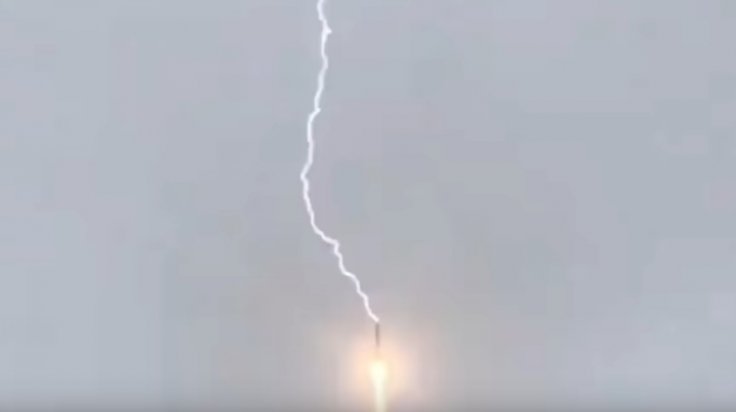
The recent launch of Russia's Roscosmos Soyuz 2-1b rocket from the Plesetsk Cosmodrome witnessed some dramatic events after the rocket was struck by a bolt of lightning as it made its ascent. However, the lightning did not affect the rocket's course and it successfully completed its 3.5 hours journey to reach earth's low-orbit where it delivered the payload, a Glonass-M navigation satellite.
Soon after the lightning strike, Dmitry Rogozin, chief of Russia's ROSCOSMOS space agency wrote on Twitter, "Lightning is not an obstacle to you." The space agency chief also congratulated the flight team who was in charge of this rocket launch.
The Russian Ministry of Defense later revealed that the satellite delivered to earth's low-orbit is working perfectly fine.
"A stable telemetric connection is established and maintained with the spacecraft. The onboard systems of the Glonass-M spacecraft are functioning normally," said the Russian ministry in a recent statement.
Usually, the rocket launches are carried out only after ensuring clear weather conditions. However, there are some cases where rockets got struck by lightning bolts and the most classic example being 12 mission aboard a Saturn V rocket on November 14, 1969.
After the launch, the rocket was struck by a lightning bolt, not once but twice. The unexpected strike resulted in the malfunction of various equipment in the rocket including instrumentation, displays, telemetry and fuel cells. However, proactive responses from the mission crew helped to proceed with the mission as planned and it continued its journey to the moon.
In the meantime, Russia has recently revealed that the country will land cosmonauts on the lunar surface by 2030. However, Dmitry Rogozin made it clear that Russia is not gearing up for a space race, aiming to overpower the dominance of the United States.









